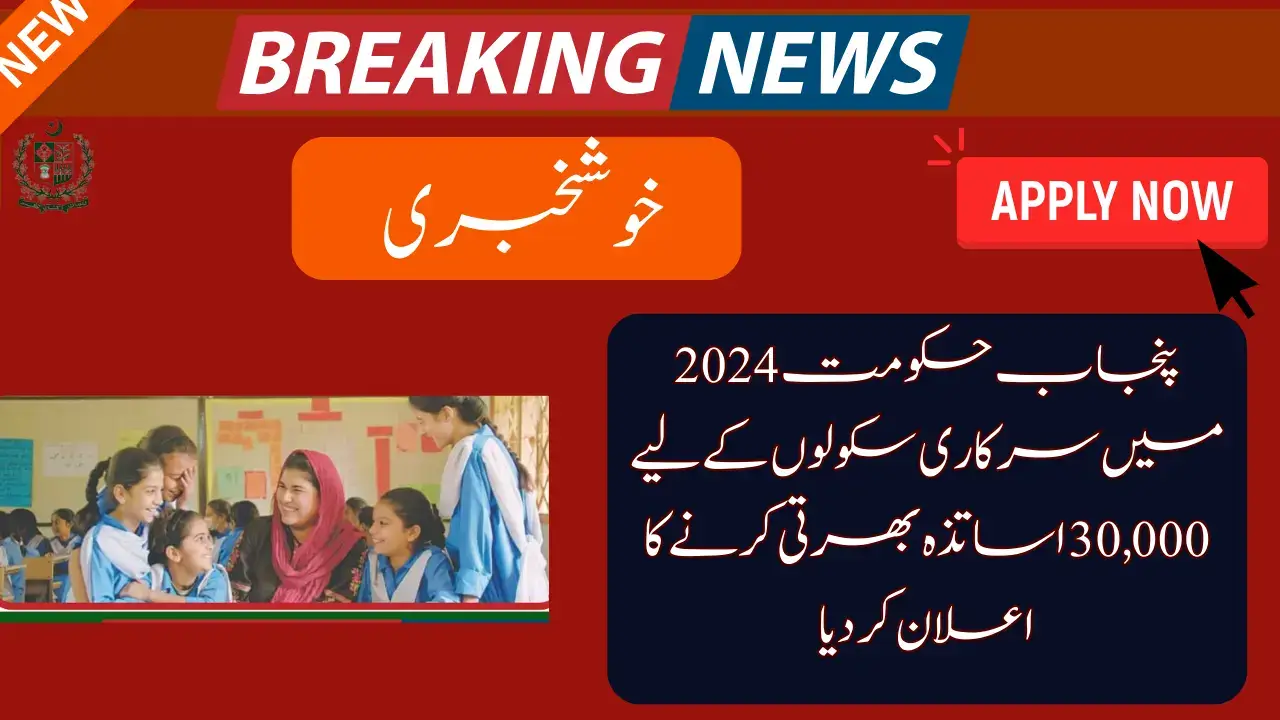The Punjab government has announced a significant recruitment drive to address the shortage of teaching staff in government schools. Over the next two months, 30,000 visiting instructors will be hired to fill the gap and improve educational standards across the province.
30,000 Teachers for Government Schools
The Punjab government has announced a major recruitment drive to hire 30,000 teachers for government schools in 2024. This initiative aims to address the teacher shortage and improve the quality of education across the state. The recruitment process will focus on selecting qualified and experienced candidates to enhance the learning environment for students. This move is part of the government’s broader efforts to strengthen the education system and ensure that every child has access to quality education. The recruitment drive is expected to begin in the coming months, with detailed guidelines and application procedures to be released soon.
Minister’s Statement on Teacher Recruitment
Punjab’s School Education Minister, Sikandar Hayat, has highlighted the urgent need to tackle the current teacher deficit. The minister stated that up to 30,000 instructors will be hired across the province in multiple phases to ensure all government schools are adequately staffed.
Current Situation of Teacher Shortage
The School Education Department is currently facing a massive shortage of 115,000 teachers. The last major recruitment occurred in 2018 during the PML-N administration. Since then, under the PTI government, only a small number of appointments have been made, primarily in districts such as Murree and Mianwali.
Recruitment Plans
The education minister has outlined a detailed recruitment plan, aiming to hire between 20,000 and 30,000 teachers during the summer break. This strategic timing is intended to ensure that schools are fully staffed for the upcoming academic year.
Multi-Phase Approach to Hiring
To effectively manage the teacher shortage, the hiring process will be carried out in multiple phases. Up to 30,000 instructors will be appointed on a visiting basis, with their remuneration structured on a per-lecture basis.
Union’s Perspective on Recruitment
The Punjab Teachers Union (PTU) has emphasized the importance of permanent appointments to fully address the teacher shortage and enhance the quality of education in government schools. They argue that temporary solutions like visiting instructors are not sufficient to solve the long-term issues.
Government’s Objective and Rationalization Plans
The provincial Minister of School Education is committed to concluding the recruitment process during the summer break to ensure schools are adequately staffed for the new academic session. In addition, plans for rationalization will be implemented to manage any remaining shortages effectively.
Anticipated Impact on Education
The announcement of additional teaching positions is expected to create more employment opportunities and improve the standard of education in Punjab’s government schools. By addressing the significant teacher shortfall, the government aims to ensure that all students receive a quality education.
Addressing the Gap with Permanent Appointments
Despite the current recruitment drive, the government acknowledges the necessity of permanent appointments to bridge the gap of 115,000 teachers and guarantee the delivery of quality education.
Quick Details
| Aspect | Details |
|---|---|
| Recruitment Announcement | 30,000 visiting instructors |
| Timeline | Next two months |
| Minister | Sikandar Hayat |
| Current Teacher Shortage | 115,000 teachers |
| Last Major Recruitment | 2018 (PML-N administration) |
| Recruitment Strategy | Multiple phases, per-lecture remuneration |
| Union’s Stance | Emphasis on permanent appointments |
| Government Objective | Complete recruitment during summer break |
| Impact | More employment opportunities, better education |
| Long-Term Solution | Need for permanent teacher appointments |
This strategic move by the Punjab government aims to mitigate the current crisis in the education sector, providing immediate relief while acknowledging the need for long-term solutions.
